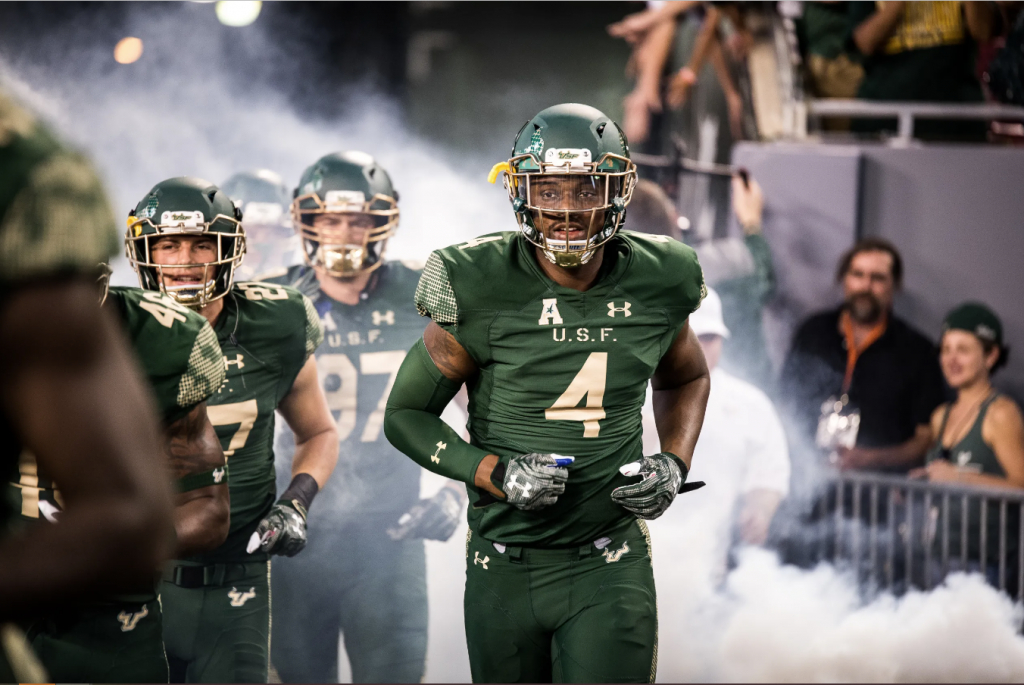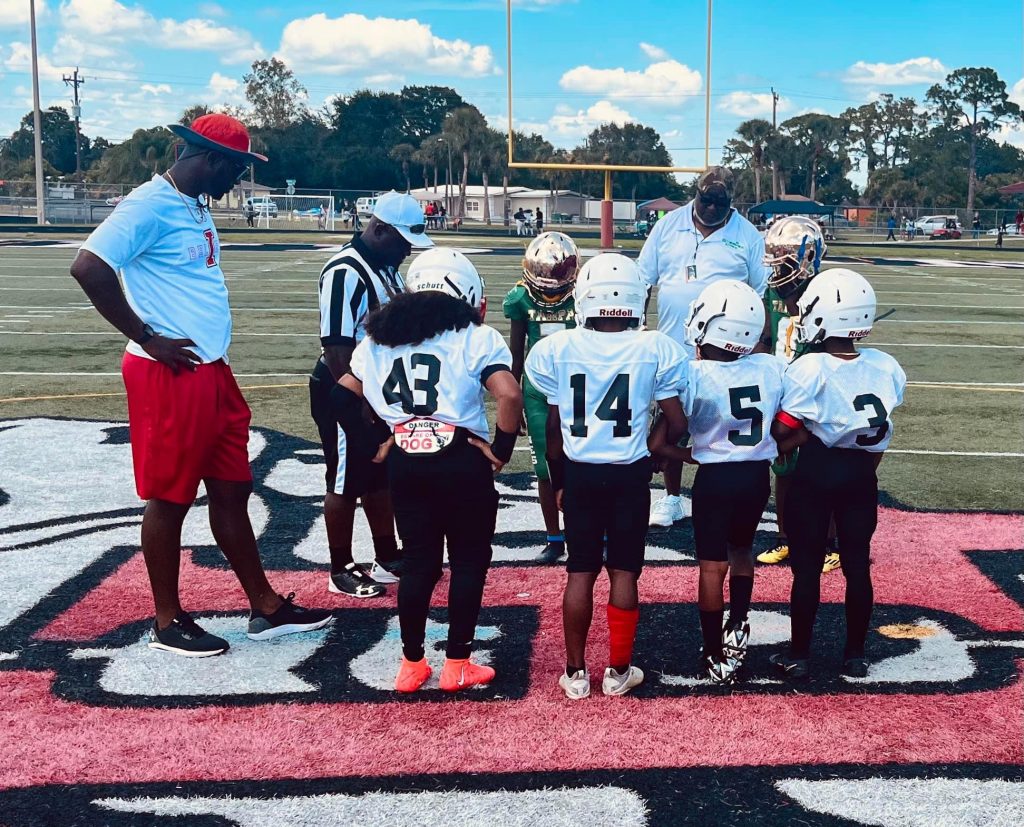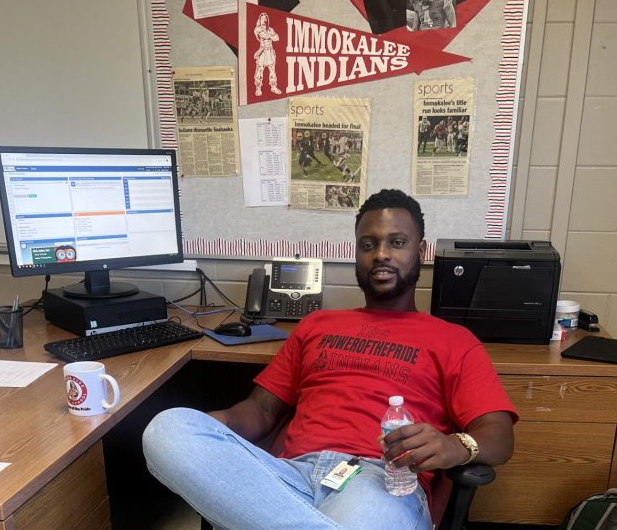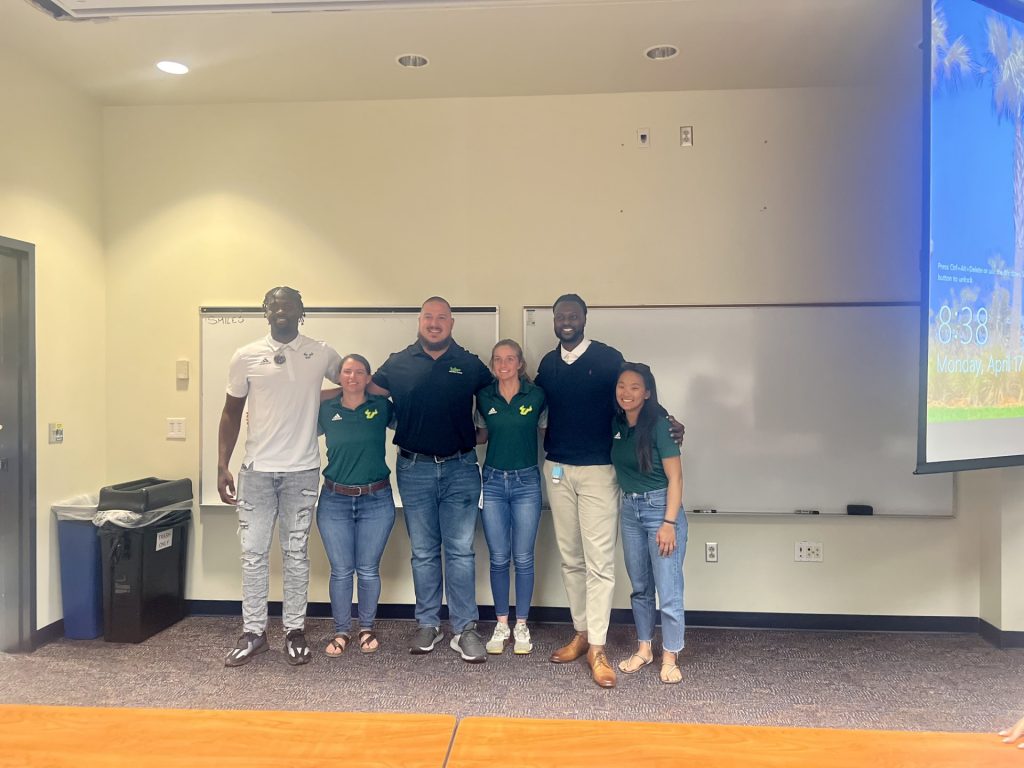One public health alum tackles giving back to his community
For Jimmy Bayes, a USF College of Public Health (COPH) alum and former USF football player, family and culture are top priorities.
“I’m of Haitian descent and among the first in my family to go to college and graduate,” Bayes said. “My mom and dad are hardworking individuals and they are high on morals, tradition and culture. I was raised to show respect to the community around me.”
Bayes had an early introduction to public health, which ultimately led him to the COPH.
“Growing up I was heavily involved in the community and did a lot for organizations like Habitat for Humanity,” Bayes said. “Another thing that got me into public health was my sister being a nurse. I volunteered at our local health department and was always heavily involved in my community, even as a youngster.”
What led Bayes to USF was a relationship with Willie Taggart, head coach of USF football.
“We had an opportunity to really shock the landscape at USF,” said Bayes, a former defensive end. “We had a lot of playmakers in my class.” That, coupled with being able to stay close to family, is what solidified Bayes’ decision to commit to USF.

Academically, Bayes started at USF as a psychology major, then moved to a physical therapy major before ultimately deciding on public health.
“I wanted to use my experience to better the kids coming in behind me,” Bayes said. “I met my mentor, Dr. Joe Bohn, through public health and that’s where I became rooted. It was the best decision I made academically.”
Bayes said he was the only football player in his public health classes at that time.
“I came from a small town and going into a big city that has a lot of international students was a great opportunity. I had to make more friends. I had to learn new perspectives,” he said.
Bayes graduated from the COPH in 2018 with a Bachelor of Science in Public Health.
Unfortunately, a shoulder injury changed his plans for a career in football.
“I couldn’t pass the physical,” Bayes said. “When I realized I couldn’t go professional, I grew depressed. But one thing that helped me out of that depression was my work and focusing on my drive.”
Bayes said the fundamentals and lessons that sports taught him are invaluable.
“When you get knocked down, you get back up. When you don’t know how to make the play, you go back to the film and you watch what you did wrong and you correct it.”
Bayes said what led him back to his hometown in Immokalee, Fla., was the opportunity to give back. He is now coaching at his alma mater, Immokalee High School, is president of the Immokalee Youth Sports League and has even returned to inside the classroom as a teacher.

“The main thing that keeps me going is knowing that my coaches and the pillars in my neighborhood when I was growing up didn’t give up on me,” Bayes said. “They didn’t say they were too tired. They just kept going. I’m a product of that. Like they say, ‘It takes a village to raise a kid.’ My parents worked very hard, and the community helped raise me. I’m literally a product of that concept.”
Today, Bayes is a 9th grade English and intensive reading teacher at Immokalee High School.
“I became aware of the teacher shortage through discussions with the pillars in my community who also supported me growing up,” he said. “They told me there was a shortage of teachers, so I stepped up.”

Recently, Bayes spoke at a mental health wellness event.
“It was for athletes that didn’t go pro and are fighting depression. It targeted athletic suicide,” he said. “I want athletes and competitors to know that just because you don’t go professional, that doesn’t mean you’re not competing. There are always different aspects in life to compete in.”
“I want athletes and competitors to know that just because you don’t go professional, that doesn’t mean you’re not competing. There are always different aspects in life to compete in. I want people to know that just because you don’t train in a collegiate or professional sport, that doesn’t mean it’s over. You’re not ever done competing. There’s still much to tackle. Right now, I’m tackling youth development and it’s really fulfilling. I get to pour my experiences into developing youth.”

For now, Bayes has his sights set on returning to the COPH to visit his mentors and professors to continue to build connection. He says he’s also interested in coaching at the college level, continuing to be a mentor and has plans to start two non-profit organizations to feed the homeless and provide scholarships for future public health professionals.
Fast Five:
What did you dream of becoming when you were young?
A pro football player.
Where would we find you on the weekend?
Behind a board drawing up plays or being with family.
What is the last book you read?
“The 48 Laws of Power,” by Robert Greene and “What They Don’t Teach You at Harvard Business School,” by Mark McCormack. I read those simultaneously.
What superpower would you like to have?
Healing. A lot of people are hurt behind closed doors. We live in a generation where people don’t really know how to handle the things that hurt them.
What is your all-time favorite movie?
“Remember the Titans”
Story by Liz Bannon, USF College of Public Health
